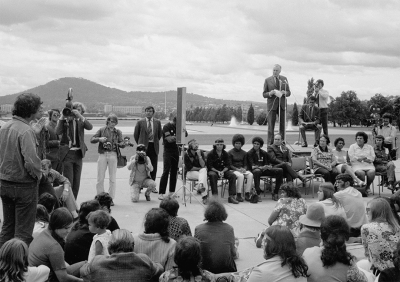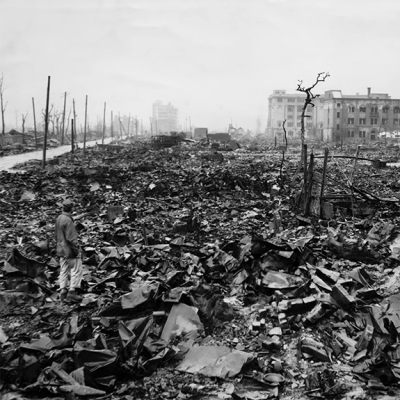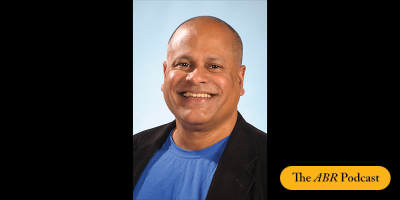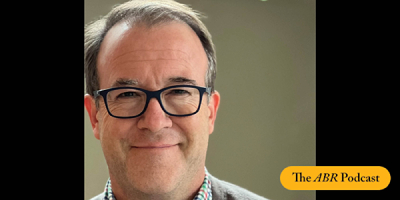Commentary
On the steps of Federal Parliament, a scrum assembled. Reporters jostled for position, enraged members of the public shouted over one another, advisers stood with faces drained of composure – even a comedian was caught in the fray. At the centre stood the tall and imposing figure of Prime Minister Gough Whitlam, listening as the governor-general’s official secretary read the proclamation dissolving Parliament. The moment, instantly mythic, would be remembered as ‘the dismissal’ – the most audacious constitutional rupture in Australian history, one that continues to haunt democratic life half a century on.
... (read more)This week, on The ABR Podcast, we feature Nathan Hollier’s commentary ‘“Come nearer to Asia”: Australia’s place at Bandung, 1955.’ Seventy years after the 1955 Asian-African Conference, Hollier reflects on Australia’s official absence from this historic ‘postcolonial moment’, as well as its unofficial presence.
... (read more)It’s 5.30 pm on New Year’s Day. Michael and I are sitting at the picnic table under the huge rowan tree in our backyard. The air is thick with heat, citronella, and our lethargy. We had a good Christmas and New Year’s, our kids at ten and thirteen young enough to embrace the magic of it all. End-of-school parties rolling into loops of carols, carrots left for reindeers, treasure piles and tables of food. Last night marked the peak of the revelry: a crowded barbecue around our neighbour’s pool, ritual gathering of eskies, wet children and sparklers in the fading light, cockatoos luminous and screeching the last of 2024 in the bush over the back fence.
... (read more)The seventieth anniversary of the 1955 Asian-African Conference held in the city of Bandung, West Java, Indonesia, passed earlier this year without evident note in Australia. In Asia and Africa, it was the subject of commemorative conferences and gatherings, impassioned speeches and articles. In Bandung itself, a ‘Global History and Politics Dialogue’ heard from Indonesia’s Deputy Foreign Minister and numerous other serving and past parliamentary leaders that the Bandung Spirit is ‘ever more relevant today’. In India, the prominent economist C.P. Chandrasekhar said that ‘seventy years after Bandung, the Global South is still waiting for independence’ and the Bandung Spirit must be revived. For the Global Times of China, what we make of the historical ‘inheritance’ of Bandung is ‘a matter of practical choices’.
... (read more)In September 2024, Israeli Prime Minister Benjamin Netanyahu sent a video message to the ‘noble Persian people’ of Iran. His address contained both a warning and a promise. ‘With every passing moment,’ he cautioned, the regime of the Islamic Republic was bringing them ‘closer to the abyss. The vast majority of Iranians know their regime doesn’t care a whit about them.’ When Iran was free, however, it would be different – thriving through global investment, tourism, and the innovation of its peoples. He concluded his dispatch by telling Iranians, ‘You deserve more. The people of Iran should know: Israel stands with you.’
... (read more)Located on Yawuru Country in Rubibi (Broome), Magabala Books is one of the most remote publishers in the world. This First Nations publishing house has helped redefine Australian publishing since the 1980s by continually ensuring that Aboriginal stories and voices are in print. Since its formal establishment in 1987 – following a landmark desert meeting in 1984 and with funding from the Australian Bicentenary Authority’s National Aboriginal and Torres Strait Islander Program and the Kimberley Aboriginal Law and Cultural Centre – Magabala has published more than 250 authors from across Australia. The press emerged in direct response to the widespread appropriation of Indigenous stories by Settler people and publishing houses and continues to define how publishing can best serve Aboriginal authors, artists, and illustrators.
... (read more)The story of our language is the story of us
The proposed abolition of the Australian National Dictionary Centre represents a significant retreat from the Australian National University’s long-standing commitment to supporting a national public culture. This should alarm all of us, not least the Australian taxpayer who contributes $220 million a year – received by no other Australian university – so that the ANU can conduct significant research ‘supporting the development of Australia’s national unity and identity, including by improving Australia’s understanding of itself and the history and culture of its Indigenous peoples, its Asia-Pacific neighbours, and its place in the international community’.
... (read more)Just after midnight on 6 August 1945, twelve United States military personnel on Tinian Island in the north-western Pacific Ocean had an early breakfast of eggs, sausages, and pineapple fritters. After prayers with a Lutheran chaplain, they boarded a Boeing B-29 Superfortress heavy bomber for a six-hour flight to Japan. Each carried a pistol, and their commander secretly carried a metal box holding twelve cyanide capsules, for use in case of capture. Their aircraft carried a nuclear bomb which would soon be dropped on Hiroshima, a city in the west of Honshu, Japan’s largest island. Accompanying them was a second bomber carrying instrumentation to measure the blast effects, and a third carrying photography equipment. Weather reconnaissance aircraft had departed earlier, to ensure conditions were suitable for the attack.
... (read more)This week on the ABR Podcast, we feature Clinton Fernandes’ commentary ‘“Without undue suffering”: Japan’s August 1945 and the superweapon alibi’. On the eightieth anniversary of the bombings of Hiroshima and Nagasaki, historian Clinton Fernandes delivers a gripping reassessment of the world’s only use of atomic bombs against civilians and exposes the ‘superweapon alibi’ that enabled a politically convenient end to World War II for both the United States and Japan.
... (read more)This week on the ABR Podcast we feature James Curran’s commentary ‘Balance sheet blues: The pros and cons of Pax Americana coming to an end’. Curran’s focus is the evolving relationship between Australia and America during and beyond Trump’s second administration.
... (read more)










